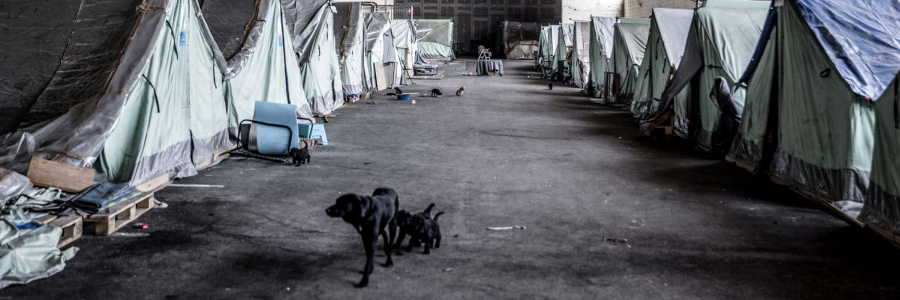The findings in this report conducted by INTERSOS and MMP indicate that, although the individual contexts in Jordan, Lebanon and Greece are unique, challenges evident for Unaccompanied and Separated Children (UASC) across all three countries do bear common themes.
Despite legislative discrepancies, it is clear that the best interests of the child, as set out in the 1989 Convention on the Rights of the Child, are consistently violated by: inconsistent or non-existent implementation of updated procedural safeguards; strained institutional capacity; and both state-level and public scepticism around ‘security concerns’ posed by UASC.
The findings also demonstrate how motivations for irregular migration appear commonly driven by the need for security when threatened by forced conscription or exploitation and/or when seeking better livelihoods opportunities. Furthermore, institutional capacity, or allocation of adequate funds for the protection of UASC, remains strained in all three contexts. When coupled with poorly coordinated monitoring and the unavailability of UASC-disaggregated data, the protection space for this vulnerable group shrinks even further.
Legal status challenges, with regards to regular entry and stay, sit at the intersection of an intricately linked chain of successive protection risks for UASC in Jordan, Lebanon and Greece. In Jordan, this is characterised by the post-2014 policy shift requiring that refugees, including minors, registered after this date reside within formalised camps, contrasted by the reality that at least 80% of this community live in host communities.
In Lebanon, UASC are prevented by law from entering and residing within the country regularly, due to the required presence of an adult guardian at all junctures. Meanwhile, in Greece, the medical inaccuracy and poor implementation of the age assessment process continue to threaten the right of UASC to access asylum and child-specific support.
Such legal status challenges place UASC at risk of arrest, detention and in the cases of Greece and Jordan, relocation and even deportation. Consequently, the threat of this compels UASC to avoid accessing humanitarian support or registering officially with national authorities, further compounding the quantitative ambiguity around their presence or movement patterns. This immediately impacts on their access to education, healthcare, psychosocial support, shelter and legal representation, again exacerbating their already acute vulnerability. In order to survive, void of the support to which they are entitled, findings indicate that many UASC turn to a series of negative coping mechanisms including child labour, transactional sex, working irregularly and incurring unfeasible levels of debt.
The contradiction in the criminalisation of children as adults throughout the migration process, contrasted by their lack of voice in decisions concerning their wellbeing, must be reconciled. A child protection approach that continues to centralise the vulnerability of UASC – without recognising their agency within the decision-making process, including their decision to move, service provision they receive and policy decisions that affect them – will ultimately fall short of insuring their best interests.
Original source: Mixed Migration Platform.
Posted on 31 August 2017

